Dwayne Johnson recasting himself as a ‘pigeonholed’ artist has a whiff about it
Dwayne Johnson is spinning the line his true artistic ambitions have been throttled by his popularity as a mainstream popcorn star. As if.
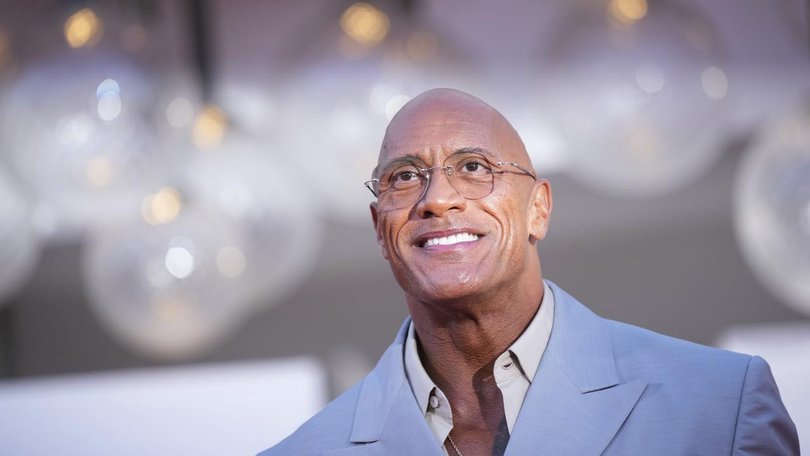
Dwayne Johnson has a favourite saying in the wrestling ring as he used his megawatt charisma to stir up the crowd, “If you smell what The Rock is cooking”.
Johnson is certainly cooking up something, and that’s an Oscar campaign.
You may have seen the video of Johnson at the Venice Film Festival, where his movie The Smashing Machine debuted to a 15-minute standing ovation (albeit it wasn’t a consensus one, half the crowd had streamed out of the theatre as the applause went on and on and on).
Sign up to The Nightly's newsletters.
Get the first look at the digital newspaper, curated daily stories and breaking headlines delivered to your inbox.
By continuing you agree to our Terms and Privacy Policy.He was filmed wiping tears from his eyes, seemingly genuinely moved by the reaction to a performance that was very un-Rock-like. In the biopic about UFC fighter Mark Kerr, Johnson embodied a different physicality, a different way of speaking and, most significantly, a different energy.
It was notable because we’re all familiar with Johnson’s screen persona. It so rarely changes.
In every movie, you can reliably expect he will flash his big smile, he will zing some one-liners, he will have at least one earnest moment, and he will flex his muscles as he faces down terrorists, mutated beasts, a zombie conquistador, and a comic book villain with the powers of six demons of hell.
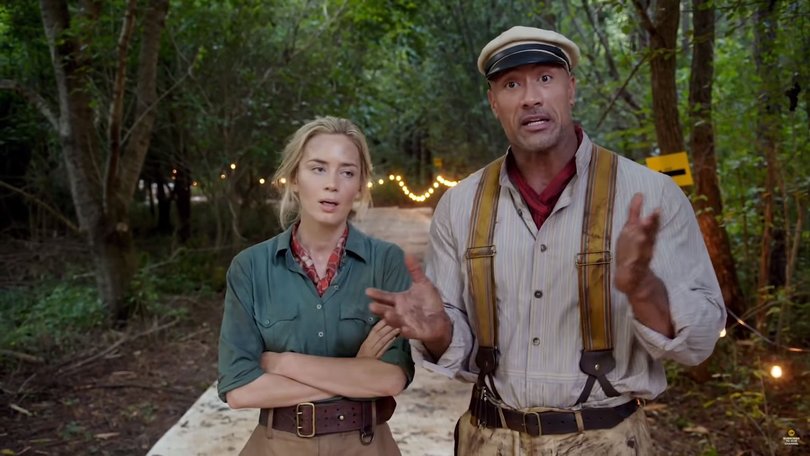
He’s made a lot of money doing it as a headline star, as a producer and as an astute businessman who can demand that his tequila brand be written into his films.
A funny thing happens during a Hollywood awards season. People get a bit cheeky. It’s not enough to let your work speak for itself, oh, no, that’s not enough. You have to have a narrative with an emotional hook. Voters have to want you, the person, to win.
In the lead up to Leonardo DiCaprio’s Oscar for The Revenant in 2016, the presiding message was, “it’s time”. DiCaprio was onto his fifth nomination and had yet to eke out a win for a career that was, most would agree, full of Oscar-worthy performances.
Brendan Fraser’s triumph for The Whale was built around the personal tragedy of a stalled career due to health and personal issues, and as a victim of alleged sexual assault, and that this comeback was a way to make good.
The Johnson Oscar narrative is already at play in full force.
There’s the superficial stuff with his team of stylists crafting a softer look with his Venice outfits favouring light, muted colours. He’s also been sporting a pair of glasses because nothing says “serious person” like myopia.
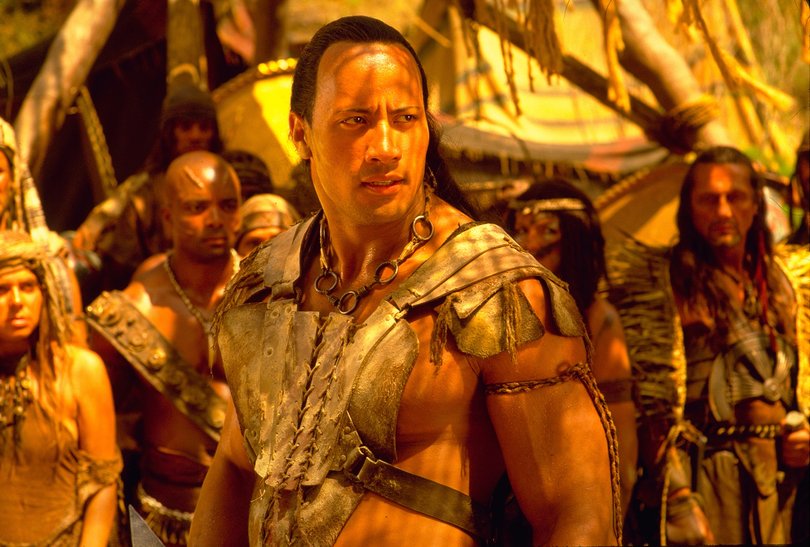
He’s also opening up, talking about infusing into the role the personal pain he’s previously kept hidden, starting with the complicated history he had with his late father, the wrestler Rocky Johnson.
There’s a very long New York Times profile in which he is uncharacteristically candid about his childhood with his volatile dad, and the last big fight they had before Rocky died.
It’s generally accepted that actors are sensitive artists who wear their emotions close to the surface so they can easily access them to do their jobs. That’s all par for the course, and Johnson should, of course, be able to branch out and try different things.
What’s galling, what he’s cooking, is that in service of this Oscar campaign, in an attempt to recast himself as a serious artist, is his claim that he had been “pigeon-holed” as a blockbuster star.
During the Venice press conference, he said, “When you’re in Hollywood, as we all know, it had become about box office and you chase the box office. The box office in our business is very loud.
“It can push you into a corner and category, ‘this is your lane, this is what you do, and this is what people want you to be and this is what Hollywood wants you to be’.”
He added that he loved making those movies because they were fun, but wasn’t sure if he was capable of more because “when you’ve been pigeonholed into something, it’s harder to know, ‘wait, can I do that?’”.
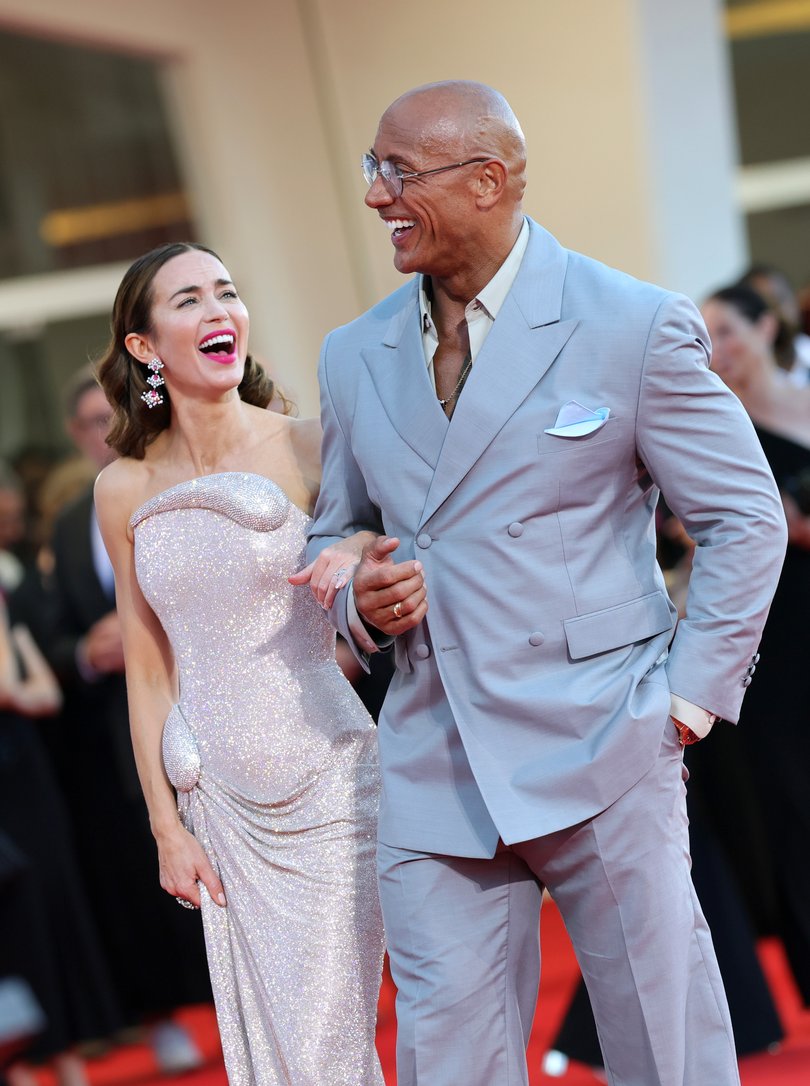
From someone else, that could ring true, and, sure, there’s likely an element that Johnson was influenced by the success of the formula, but there’s a whiff about what he’s saying.
Johnson hasn’t been held back by other people’s expectations of him, as if somehow his true artistic ambitions have been throttled by his popularity as a mainstream popcorn star.
He has very carefully and deliberately engineered a career as a sexless, inoffensive action hero who’s happy to mug for the camera as long as the audience is entertained.
To pretend that he wasn’t in the driver’s seat of those choices, particularly as a producer of his films for almost a decade, is disingenuous.
While others will openly tell you that being a producer or executive producer on their projects doesn’t mean they actually did anything – Olivia Colman is one of those people – Johnson is an active decision maker. He wheels and deals, and has the power to have films and TV shows greenlit.
He has also publicly defended his films from any criticisms that they weren’t financially successful, suggesting he cares more about the business side than the artistic one.
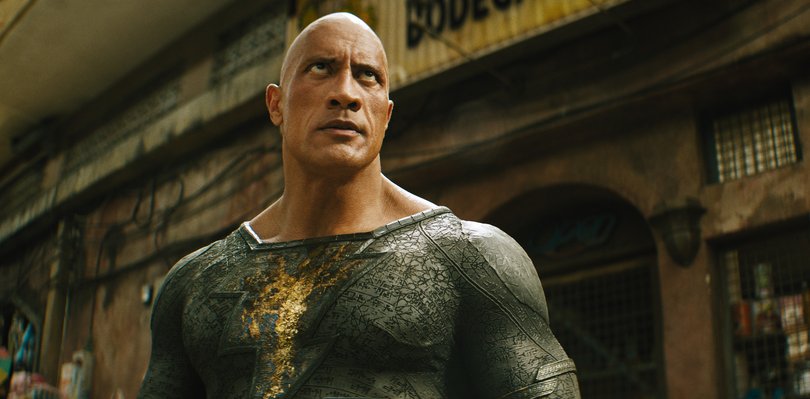
Among the chatter that his Christmas movie Red One, which had a reported budget of $US250 million, was tanking at the box office with $US178 million in ticket sales, he wrote on Instagram that “Red One has very a long shelf life in multiple verticals – kudos to our Amazon partners for their strategic win, that’s just getting started”.
He also hit out on social media when the press branded Black Adam a box office failure. Johnson claimed the movie was on track to “PROFIT between $52M-$72M” and that he had confirmed it with financiers, and that they were “building our new franchise step by step”. Black Adam was cancelled by the new guard at DC not long after.
Language such as “strategic win” and “multiple verticals” is for suits, accountants and executives, not artists. You’ll never hear those words from Daniel Day-Lewis or Tilda Swinton.
While there’s nothing wrong, per se, with Johnson getting into the weeds on the money front, especially as someone who came from nothing, if that’s who you are, be honest about it.
There’s no doubt that Johnson is massively charismatic and he’s popular because he can bring his fans along for the ride. He wants people to have a good time (Jumanji is genuinely fun!), and no one is begrudging he be paid and praised for it.
He’s even pretty good in The Smashing Machine.
But cooking this idea that he had been a typecast, unseen and misunderstood artist, well, that smells like the greatest performance of all.

